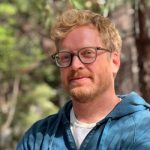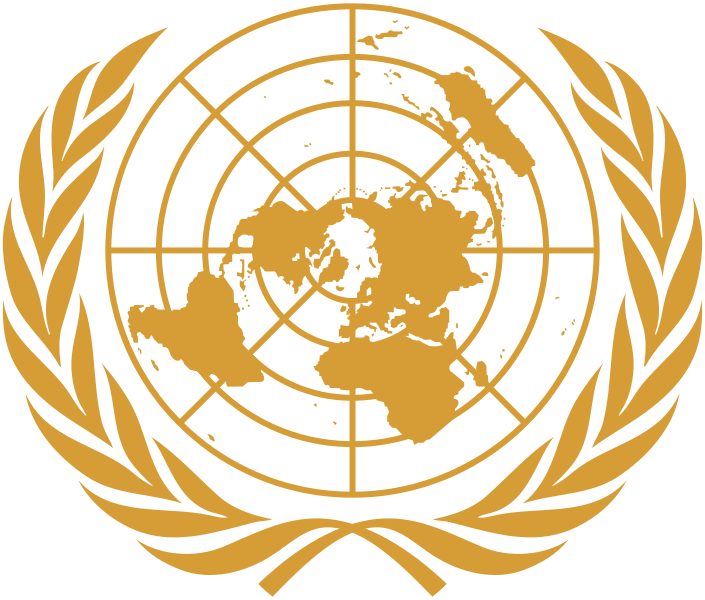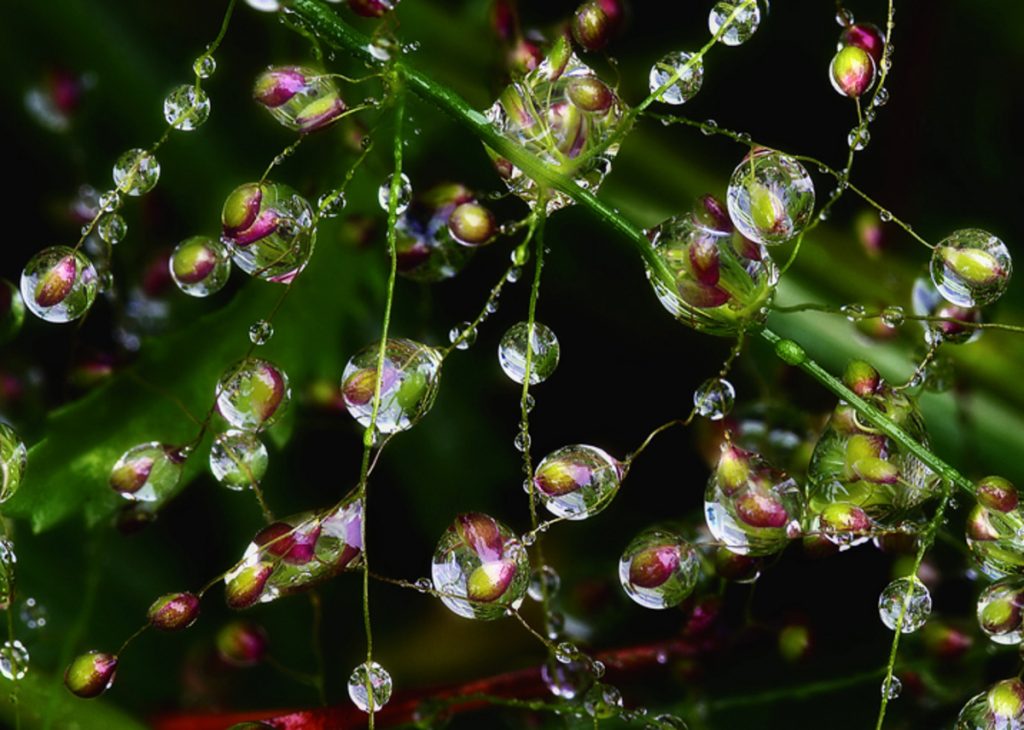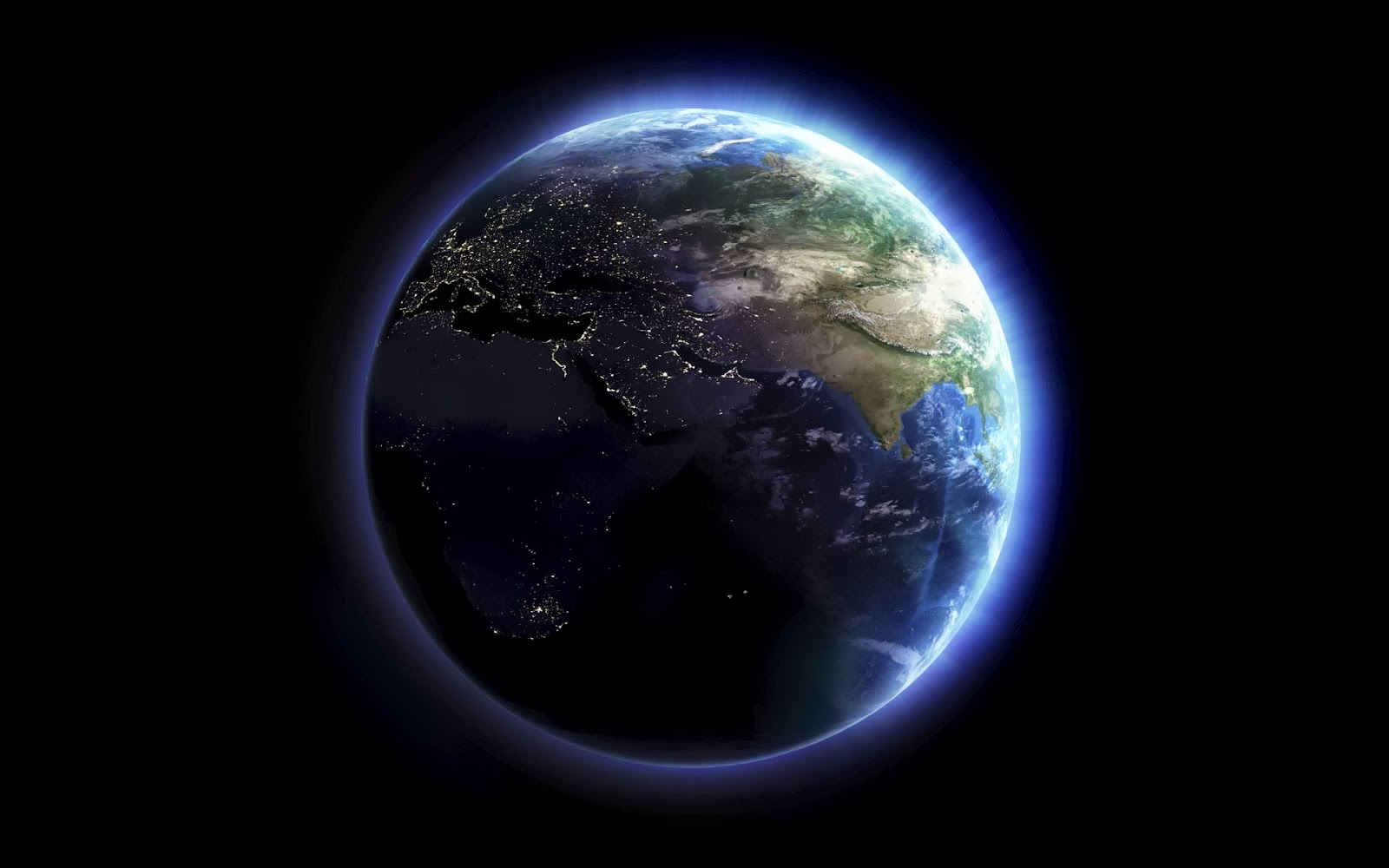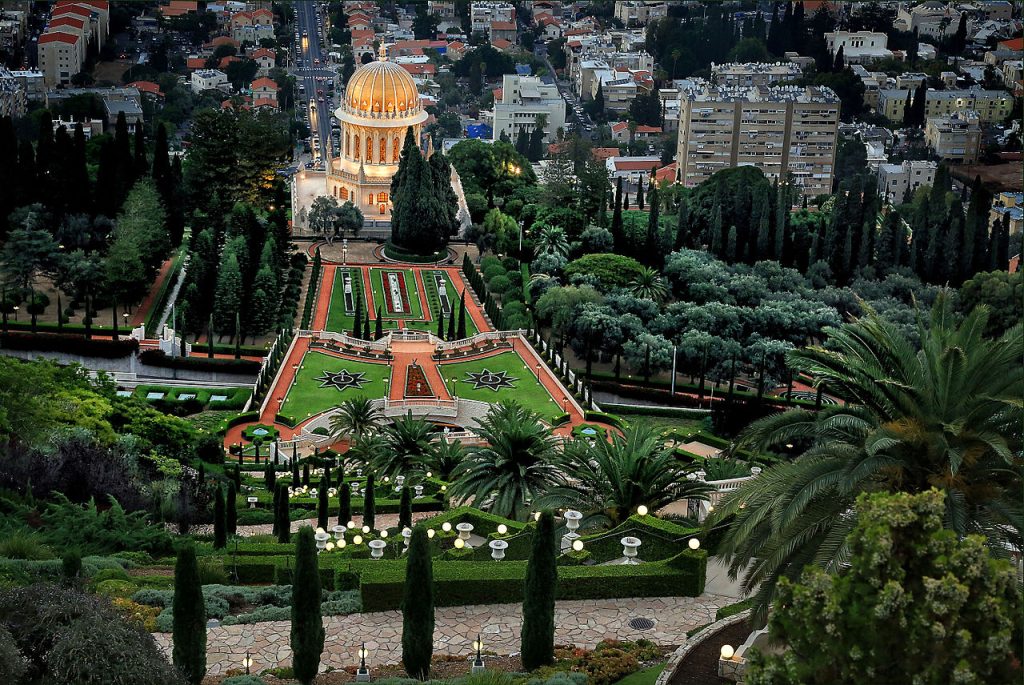‘The Grab’ | Conspiring to Control the World’s Food and Water
Editor’s note: At the invitation of Kosmos advisor and acting CEO of the Center for Investigative Reporting, (CIR), Robert Rosenthal, I met journalist Nate Halverson and saw his film The Grab at the Philadelphia Film Festival. Seven years in the making, The Grab examines the money and planning behind secretive land and water grabs by some of the world’s most powerful entities. The mix of players includes corporations and governments, farmers and mercenaries, activists and informants.
Kosmos | There was already something in my heart that was attuned to your documentary, The Grab. The Transition Town Movement in my town is also very concerned with food and water security. Thank you for your dedicated investigation. It’s really needed.
Nathan | Thank you.
Kosmos | When did you know that you wanted to be an investigative journalist?
Nathan | I was an undergrad at the University of Minnesota, and we were having a house party. There was a young college journalist there, working for the college newspaper. I began chatting with her and ended up getting a job at that college newspaper, which I knew nothing about. I didn’t realize that it was this coveted position! The annual budget for the student newspaper at that time was around $7 million and it had a daily circulation of like 70,000. But it just sounded fun and I started doing it. And you know what? It was really fun.
I think it was like my second week, and then Governor Jesse ‘the Body’ Ventura, former wrestler movie star, had announced that he was going to be decreasing expenditures to the university, which was going to result in tuition rate increases. I was going to write up that story and I thought, “Well, I guess I should call the governor’s office.” I’m still a teenager then, and you know, you don’t think you have the right to call the governor’s office, but that’s your job. And so you do. Next thing, I’m on the phone with Jesse Ventura, the Governor, who’s blustery and dismissive, but there it is.
I just kept gravitating towards more investigative work. I was never interested in being a sports reporter or any type of reporter… I gravitated quite quickly to investigative journalism.
Kosmos | How did you get on the radar of the Center for Investigative Reporting?
Nathan | I went to work for a man named Lowell Bergman, who was a former 60 Minutes producer, and who Al Pacino portrayed in The Insider. Lowell really broke open the story that the tobacco companies knew that tobacco was carcinogenic and addictive. I began working with Lowell on a PBS Frontline documentary, and they sent me to Macau for six weeks to hang out with gangsters, or what the US government would call gangsters, and get them to go on camera and talk about how millions or billions of dollars was moving out of mainland China into the Macau gambling system and into the US financial system. So, I did that.
Then when I finished that up, I went over and I was asked to work on a project for CIR that was looking into Smithfield Foods and how a Chinese meat company had purchased one in four American pigs.
Kosmos | And that’s really where this whole journey began. There are multiple lines of inquiry in the documentary. Each one of them could be a full blown investigative piece itself. When or how did it start to come together in your mind that it was all connected. What was that process like?
Nathan | As I began reporting, I reported on the Smithfield food story, and I knew nothing about the food sector. My background is in economics and as a business reporter and as an investigative reporter, but I knew nothing about that sector. Once I realized that the Chinese government was incentivized and subsidizing, orchestrating the purchase of one in four American pigs, I really wanted to know the ‘why’. Once I began to understand the why, which is that the Chinese government is focused on controlling food and water resources around the world, I began to ask if other countries are doing that. Once that became clear that other countries were doing that, it became, ‘why is that important to so many countries?’ Then it became, ‘so what does that look like on the ground?’
Once I began painting that line of inquiry, why countries are doing this, that brings me into things like the Arab Spring, Boko Haram, Somali pirates. It begins bringing me into the world of food as geopolitics; food as a weapon of war. It begins to bring me into the world of ‘what does that mean for people on their ancestral land that has water and has fertility or that is arable?’ Then it begins to make me understand how Boko Haram is now connected with the people that are being displaced from their land, how Somali pirates are connected to people who are being displaced from their food sources. Pretty soon, I have this intertwined holistic view of the world.
Like this weekend, the New York Times had a of couple articles, one of them was that farm prices hit an all time high in the US, and it mentions in there that Bill Gates’ family money is now the largest farmland owner in the US. These things are deeply contextualized to me. These aren’t out of the blue, and I no longer have these big questions of ‘why’. That was my hope with making the documentary – that people have a broad enough knowledge base on this subject so that these stories that they see in the news no longer feel like one-off stories, but they are contextualized in a framework of what’s going on.
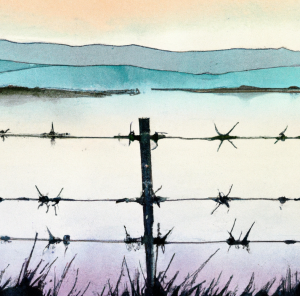 So when you see a story about civil unrest in Sri Lanka, and food prices being one of the major contributing factors, or you see either local government or militia or mercenaries being called into a remote part of Africa to quell disputes with locals, you look a little deeper and you see that there’s land displacement issues, you begin to understand that these aren’t ‘radical, crazy people that have backwards beliefs’. They are people fighting for their ancestral land that have had their sustenance taken away from them and their ability to get water maybe taken away from them. You begin contextualizing these patterns. So that’s it. That was my goal in making The Grab, was to give people enough information, that all of these seemingly disparate events are now part of a larger web of knowledge.
So when you see a story about civil unrest in Sri Lanka, and food prices being one of the major contributing factors, or you see either local government or militia or mercenaries being called into a remote part of Africa to quell disputes with locals, you look a little deeper and you see that there’s land displacement issues, you begin to understand that these aren’t ‘radical, crazy people that have backwards beliefs’. They are people fighting for their ancestral land that have had their sustenance taken away from them and their ability to get water maybe taken away from them. You begin contextualizing these patterns. So that’s it. That was my goal in making The Grab, was to give people enough information, that all of these seemingly disparate events are now part of a larger web of knowledge.
Kosmos | Watching the film, I guess it didn’t surprise me that various global players and nations would try to maximize benefit for their own countries and import food or purchase water rights. What did surprise me was the extent of weaponization and militarization involved. Can you talk about that a little bit?
Nathan | There’s a lot in the film, but there’s even more that’s not in the film. For instance, when ISIL is marching through Iraq, they are systematically taking over dams. This has now become a common thread. Like, Russians systematically targeting grain silos or water infrastructure in Ukraine, or that Kherson is next to the Crimean water canal.
Now, there’s a town right near Kherson, which is the headwaters of that canal. When Elon Musk, who Ian Bremmer says talked directly to Putin, tweets out that there are four or five things that must happen to have peace between Russia and Ukraine, one of those is maintaining water to the Crimean Canal. You now have the world’s wealthiest man talking openly about peace only happening around one issue: water. You begin seeing how water is both an instigator of conflict and is used as a weapon in conflicts, and ultimately is going to be a key component to either finding or maintaining peace in the 21st century.
Kosmos | There is research that says where there is water cooperation between nations, there tends to be peace…
Nathan | That’s right. There is a Professor Aaron Wolf in the Department of Geosciences at Oregon State University who is often cited – that historically, cooperation around water has resulted in longer lasting peace. But the flip side of that coin is that we are no longer living in that period of water abundance. We’re living in a new era which climate change is accelerating. There are many accelerants. It’s not just climate change. It is what our diet consists of. It is people eating what some would say is higher up on the food chain, or just meaning they’re eating more meat, which requires a lot more water.
You look at the Indus River Basin in between Pakistan and India, and that water is no longer reaching the Indian Ocean. It’s no longer even reaching, as far as I understand, all the way through Pakistan. As that water continues to get depleted and those populations grow and it becomes more coveted, there is increased pressure between those two countries around that treaty. Modi has actually even cited the potential of canceling it if Pakistan weren’t to do something he wanted them to do, which is an existential threat for Pakistan.
Kosmos | Even smaller conflicts… at Standing Rock, I was shocked to see how militarized it was. The police and private security forces used rocket launchers and riot gear to subdue people peacefully demonstrating against the pipeline and tying to protect their water. But they were not referred to that way…
Nathan | Yep. ‘Rioters, terrorists, enemy combatants.’
Kosmos | I guess that goes for anyone trying to protect their land or their food supply or their water. Is that how you see it playing out?
Nathan | Yeah. The current trend line is really, really bad.
Kosmos | You guys were in some pretty tight spots. How did you take care of each other and your own fear in some of those cases?
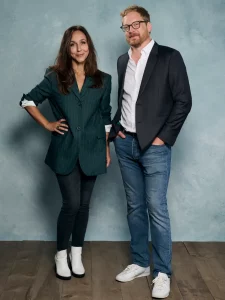
Nathan | We have thorough protocols and preparation in place around security, whether it’s cybersecurity or physical security. We take these things seriously. But I also just think it’s really important to recognize that the people we were filming, human rights defenders, land defenders, people on the front lines, the communities that are pushing back, are putting so much more out there on the line than we ever do.
I go into places and I spend a week or two and I come back to San Francisco and I have land and there’s food in my grocery store. I turn the water on my faucet and drinking water comes out, and amazingly hot water comes out, and there’s electricity 24 hours a day. I can walk my dog safely down my street. I just can’t emphasize enough that putting myself out there for two weeks is such a small ask of the universe relative to those that are living in that space their entire lives and don’t have an easy way out. I can’t spend too much time talking about how I manage my own fear because it’s so small compared to what so many people are dealing with day to day that it just feels trite and a little self-indulgent and detached from the reality of so many.
Kosmos | How has this experience transformed you as a journalist, and also as a person?
Nathan | I’ve had to learn to live with the idea that the future might be very bleak and might not turn out very well. I’ve just had to learn to live with that. There’s a lot of time, I think, spent internally where your emotions wrestle with and push back against the idea that things are moving towards a fairly dark trendline, and it has the power to make you unhappy.
But I think at the end of the day, happiness is derived from our immediate communities, in how we foster those and from the meaning of the work that we do in the moment, day to day. I don’t know, Mark Twain gets credit for so many quotes he didn’t say, so I’ll just give him credit for this one, too. But “worrying about the future is oftentimes paying interest on a debt you have not yet accrued.”
So, I think the more important thing than feeling hopeless or helpless or sad or distraught to the point of paralysis, the more effective tool is to make sure you’re tending the garden of your community and putting yourself into a position to create meaning in the work that you do every day, because if humanity manages to pull off a healthy future, it will be through the efforts of a great many individuals, and not necessarily governments, but individuals within governments, individuals pushing governments, individuals creating the communities that the scientists say we need for the future.
It will take individuals remaining open to very hard-to-live-with information. So, I think people are going to have to, especially in the privileged, over-developed world where our lives are very comfortable, get accustomed to a greater degree of discomfort and still produce meaningful work and tend to their communities.
Kosmos | The theme of this issue of our journal is the Four Freedoms. One of them is freedom from fear – from bad political players particularly. Often, fear comes from a sense of futility. Although there’s plenty in the film to fear, I think that the power of the film comes from the bravery of certain characters that you bring forward, some of the activists and the work that they’re doing. That feels very important. Of course, just looking at The Grab, we could come to the conclusion that we are heading for a very dark time; there’s going to be a lot of suffering. But for all the darkness that seems to be rising, do you see another kind of power on the horizon?
Nathan | Absolutely. The things that are in The Grab are difficult, but they’re manageable. They can be managed. If people come together, there is no guarantee that widespread suffering has to take place. The more that people get activated, the less suffering there will be.
That all starts with being informed. As facts on the ground change, altering paths, being open to new information, being adaptable and treating each other kindly and gently, even those who have drawn different conclusions than you. If those conclusions that they drew ultimately prove to be the wrong decisions, treating them gently as we all begin to move forward and hopefully find a better path.
Kosmos | Do you think you’re going to stay focused on this area of inquiry for a while, or are you already turning your thoughts to something entirely different?
Nathan | I’ll work on this for at least another few months to put out some print pieces and some radio pieces. There’s a lot of information that’s not in the film that I think will be beneficial for the world to have in sort of a condensed, consolidated place to access. There’s already terrific amount of reporting that’s going around on this topic.
But the General Secretary of the United Nations just tweeted yesterday… Let me see what he tweeted. It’s not very good. This is what he said: “We are on the way to a raging food catastrophe, and the world appears to be indifferent.” So, I’m hoping that The Grab can be part of what makes people less indifferent, that it gives them a way to contextualize, and a framework to see this information and to understand and to push for action. Because in a representative democracy like the United States, politicians largely won’t act unless their constituents say this is a priority for them. So, I’m just hoping that people have information.
But at the end of the day, my role is just to knock on the front door and say, “Your house is on fire. You should get out.” Sometimes people say, “Well, yeah, but shouldn’t you have a plan on how to put the fire out?” I say, “Well, no. My plan is to tell people their house is on fire,” and hopefully there will be experts who know how to put the fire out.
Kosmos | That’s your work to do in the world, and you do it beautifully with your team. So, thank you very much to all of them and to you.


